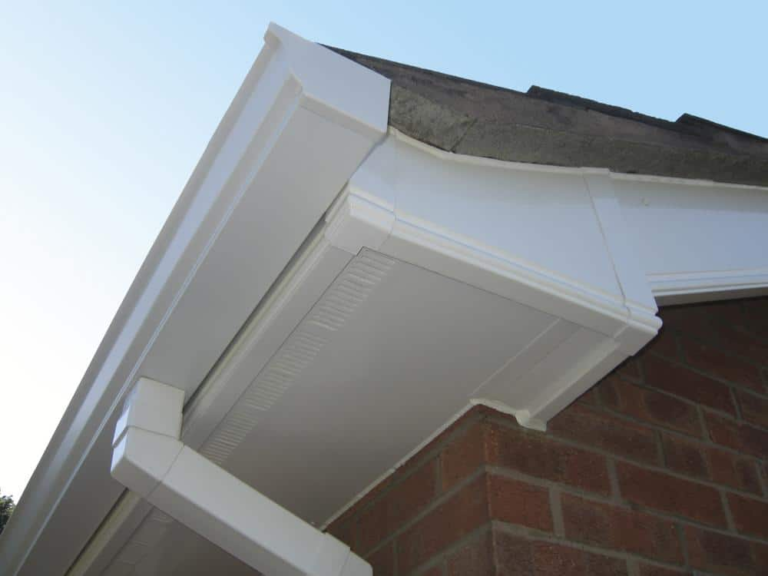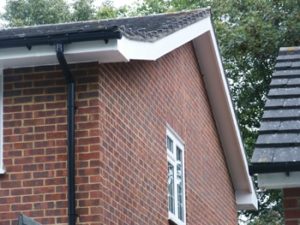This company has no active jobs
0 Review
Rate This Company ( No reviews yet )
About Us
The 10 Most Terrifying Things About Fascia And Soffit Maintenance

Fascia and Soffit Maintenance: A Comprehensive Guide
When it concerns maintaining a house, the value of exterior components like fascia and soffit can not be overemphasized. These parts not just add to the aesthetic appeal of a home however likewise serve necessary functions in terms of ventilation, moisture control, and structural stability. This post looks into fascia and soffit maintenance, covering their meanings, functions, typical problems, and effective maintenance practices to guarantee their durability and efficiency.

Comprehending Fascia and Soffit
Fascia is the vertical board that runs along the edge of the roof, generally where the roofing system eaves extend. It holds the gutter system in place and is typically painted to match or emphasize the exterior of the home.
Soffit, on the other hand, is the horizontal board that links the fascia to the home’s exterior wall. Soffits are generally vented to enable air flow into the attic space, promoting ventilation and avoiding heat and wetness buildup.
Functions of Fascia and Soffit
The primary functions of fascia and soffit consist of:
- Protection: They shield the attic and roofing system structure from the elements, consisting of rain, snow, and bugs.
- Ventilation: The vented soffit enables proper air flow, which assists to prevent mold and condensation in the attic.
- Aesthetic Appeal: Both fascia and soffit add to the overall curb appeal of a home, improving its visual interest.
Common Issues with Fascia and Soffit
Like any part of a home, fascia and soffit can deal with a series of problems that might compromise their effectiveness. Common problems consist of:
- Rotting: Moisture and humidity can cause wood rot in both fascia and soffit, damaging their structural integrity.
- Pest Infestation: Insects, like bees, wasps, and termites, might nest in these locations if left unchecked.
- Peeling Paint: As weather and time take their toll, paint can begin to peel, detracting from the home’s appearance and enabling more moisture seepage.
- Gutter Issues: Poorly installed or preserved gutters can overflow, causing water damage and soil disintegration around fascia and soffit.
- Vent Blockages: Dust, debris, and nesting products can hamper air flow from soffit vents, leading to improper ventilation in the attic.
Maintenance Tips for Fascia and Soffit
Routine maintenance is essential for making sure fascia and soffit remain practical and attractive. Here are some important maintenance actions:
1. Regular Inspections
Conduct regular inspections, particularly after severe weather, to look for indications of damage or wear. Search for:
- Cracks or divides in the fascia
- Indications of rot or mold
- Loose or sagging sections
- Pest activity
2. Tidy Gutters and Downspouts
Blocked rain gutters can result in water pooling, which increases the threat of rotting fascia and soffit. Guarantee seamless gutters and downspouts are free of debris and working effectively:
- Remove leaves, branches, and dirt
- Flush with water to inspect drain
- Clear any blockages
3. Painting and Finishing
If fascia and soffit are wood, painting or staining them can improve their resistance to moisture and pests:
- Choose durable, weather-resistant paint or stain
- Repaint every few years as needed
- Repair any peeling before repainting to make sure adhesion
4. Guarantee Proper Ventilation
To prevent wetness buildup in the attic, guarantee that soffit vents remain clear:
- Remove any blockages triggered by debris or insects
- Clear outside soffit holes to permit proper airflow
5. Change Damaged Materials
If any fascia or soffit boards reveal substantial damage or rot, change them right away to prevent additional concerns:
- Use rot-resistant materials like PVC or aluminum
- Speak with a professional for extensive damage
6. Professional Inspection and Repairs
For any significant concerns, such as bug infestations or severe structural problems, get a professional for a thorough assessment and repairs:
- Schedule an annual professional examination
- Address problems without delay to avoid costly repairs later
Table: Maintenance Checklist for Fascia and Soffit
| Maintenance Task | Frequency | Notes |
|---|---|---|
| Visual Inspection | Monthly | Search for damage, rot, and pest activity |
| Clean Gutters | Bi-annually | Ensure efficient water drain |
| Paint/Stain | Every 3-5 years | Usage weather-resistant products |
| Clear Soffit Vents | Every year | Prevent airflow obstructions |
| Replace Damaged Sections | As required | Use rot-resistant products |
| Professional Inspection | Each year | Speak with an expert for major problems |
FAQs About Fascia and Soffit Maintenance
Q: How typically ought to I inspect my fascia and soffit?A: It is recommended
to inspect these features monthly, particularly after extreme weather condition conditions. Q: Can I paint fascia and soffit myself?A: Yes, lots of homeowners choose to do this themselves. However, guarantee you follow proper security procedures and select weather-resistant paint for lasting results. Q: What should I do if I discover rot on my fascia?A: If the damage is minimal, you may be able to
repair it with wood filler or epoxy. For comprehensive damage, changing the impacted area is advisable. Q: How does bad ventilation impact my attic?A: Poor ventilation can lead to moisture accumulation, which can cause mold development, structural damage,and increased energy expenses due to inefficient heating & cooling. Q: Are there any products that are much better matched for fascia and soffit?A: Yes, vinyl, aluminum, and treated wood are popular options due to their sturdiness and resistance to
rot and pests. Preserving fascia and soffit is essential for preserving the integrity, security, and aesthetic appeal of a home. Routine inspections, cleaning, painting, ensuring appropriate ventilation,
and professional interventions when necessary can substantially extend the life of these key elements. House owners should remain proactive in their maintenance efforts to avoid costly repairs and ensure their homes remain safeguarded from the elements.


